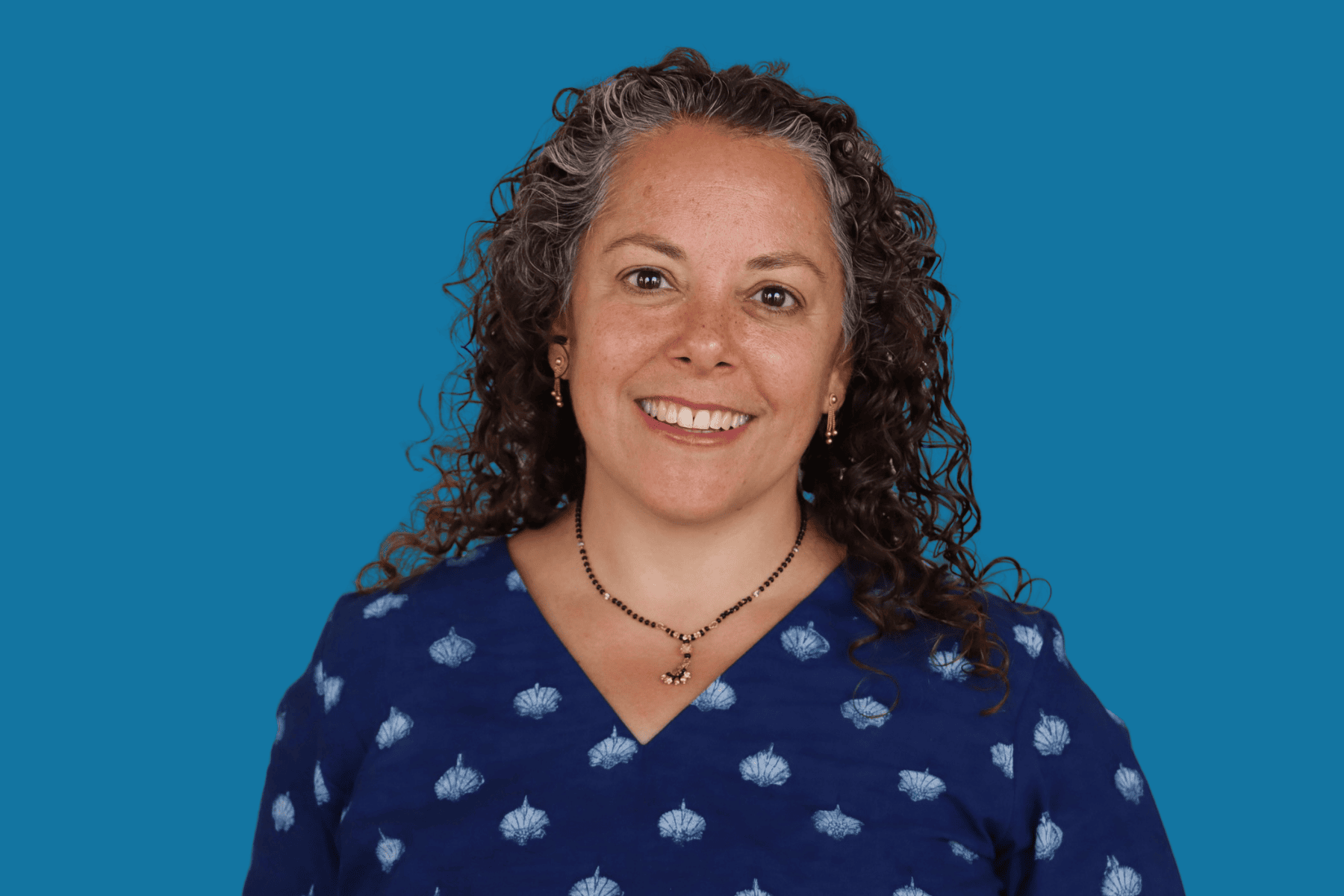We regularly spotlight members who are making waves in their departments, institutions, communities, or within AAR. If you would like to submit a member to be interviewed, please email communications@aarweb.org with the member’s name and a brief message on why they are a good candidate. Read more of our Member Spotlight interviews.
About Amy
Amy Allocco (she/her) is professor of religious studies and the founding director of the Multifaith Scholars Program at Elon University in North Carolina. She is the recipient of the University’s Ward Family Excellence in Mentoring Award and both Elon’s College of Arts and Sciences’ Excellence in Scholarship Award and Excellence in Teaching Award. Allocco teaches courses on the religions of South Asia, particularly Hinduism, as well as Hindu goddesses, ethnography, and gender in Islam. In addition to co-leading a January term study abroad course in India, Allocco is an active mentor of undergraduate research in Religious Studies.
What is your area of expertise or field of study?
My research focuses on vernacular Hinduism, especially contemporary Hindu ritual traditions and religious practices in the South Indian state of Tamil Nadu. I have spent extended periods there conducting ethnographic research for projects on Hindu goddesses, rituals to invite dead relatives to return home as family deities, and Tamil performance traditions. In fact, I just concluded 14 months of field research in Tamil Nadu with support from Fulbright and the American Institute of Indian Studies for a project on Hindu drummer-priests called pampaikkārar. I am especially interested in religious change and ritual innovation, gender, narrative, and everyday religion in India. In recent years I have also conducted fieldwork in Tamil-speaking communities in Sri Lanka and written about interreligious studies, mentoring undergraduate research, and multifaith learning.
Why did you get involved with AAR and how is your work aligned?
My undergraduate mentor from Colgate University encouraged me to attend my first AAR Annual Meeting in Orlando, FL in 1998, right after I returned from a yearlong research fellowship in India as one way to determine if graduate study and a future in academe was right for me. I was immediately enthralled by the conversations unfolding in the Hinduism and Religion in South Asia units and continued to look forward to the annual meeting as an opportunity to learn from and connect with talented colleagues.
What is your favorite AAR member benefit, and how has it helped your career? This might include access to our grants, award programs, and/or various research tools; opportunities to promote your scholarship through our official channels; networking and mentoring; career training through Beyond the Professoriate; and discounts on travel, transportation, and office supplies.
When I was a PhD student at Emory University, I was brought on as a research assistant for a project to “internationalize” the Journal of the American Academy of Religion (JAAR). I learned so much about the way the study of religion is approached and framed in other countries via that project. I was inspired to serve on and then chair the AAR’s International Connections Committee in subsequent years. The networking opportunities those leadership roles opened up have definitively shaped my professional path and research trajectory, leading to invitations to present at conferences, collaborative grant awards, and co-authored publications. I became involved in the International Association for the History of Religions (IAHR) through my AAR leadership and I now co-coordinate the IAHR’s Women Scholars Network.
What is one piece of advice you’d give to a first-time Annual Meeting attendee?
Develop a meeting plan that includes a mix of activities: plot out sessions in your areas of expertise that you want to attend, reach out to a couple of people whose work you are interested in to prearrange meet-ups, and check out a plenary or one of the panels related to the presidential theme. Throughout the meeting, extend yourself and take a few risks—stay for the business meetings of program units that align with your interests and talk to people about potential collaborations or ways to get involved. Attend a reception or two and strike up conversations. In between, take a few minutes for yourself by going for a walk or checking out what the host city has to offer.
What book is on your nightstand that you’re reading or intend to read in the future?
I just finished Girl, Woman, Other by Bernardine Evaristo and The Seven Moons of Maali Almeida by Shehan Kaunatilaka, both Booker Prize winners. I am about to start Amitav Ghosh’s The Glass Palace and The Lemon Tree: An Arab, a Jew and the Heart of the Middle East by Sandy Tolan. Both are books that beloved Elon alums recommended to me.
What do you enjoy doing outside of work?
My favorite activities are gardening, traveling, reading through stacks of cookbooks on my front porch, riding my bike, and cooking. Over the last several years I have invested a lot of energy in learning about the native plants of North Carolina and transforming sections of our property into pollinator gardens. I also enjoy learning about Arts and Crafts era homes and furnishings (and doing projects on our 1915 bungalow) and researching my family’s Italian ancestry.
